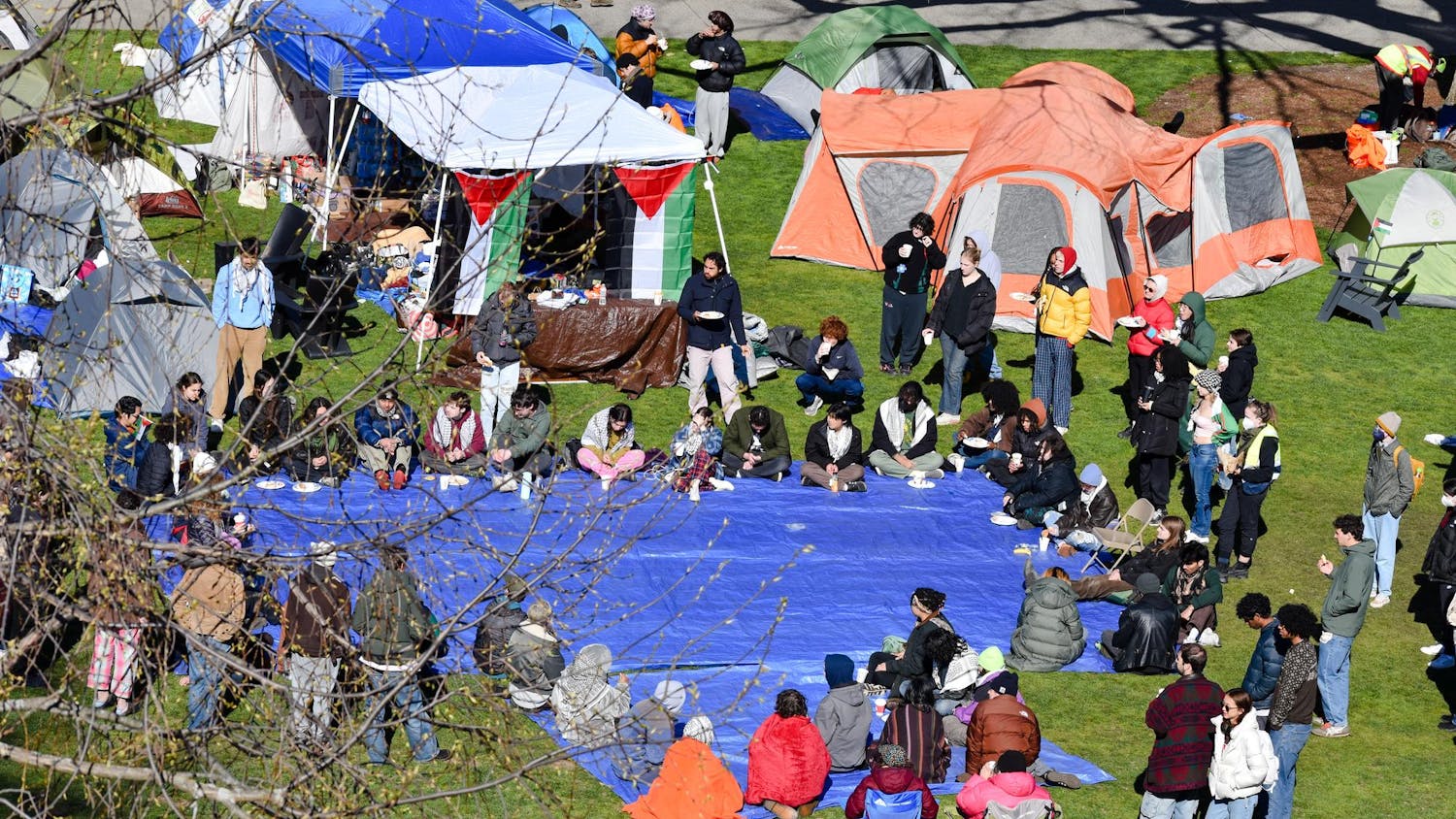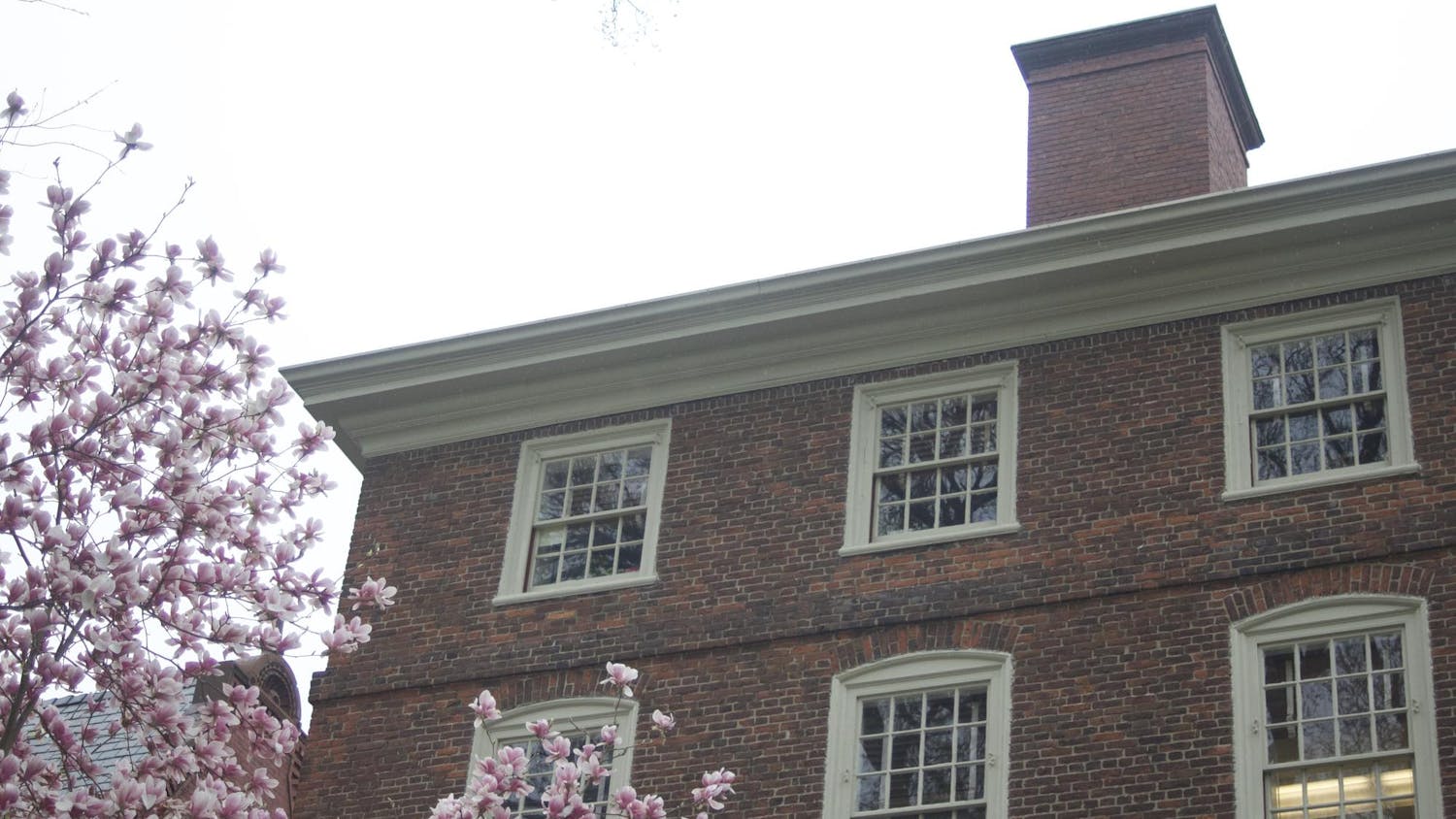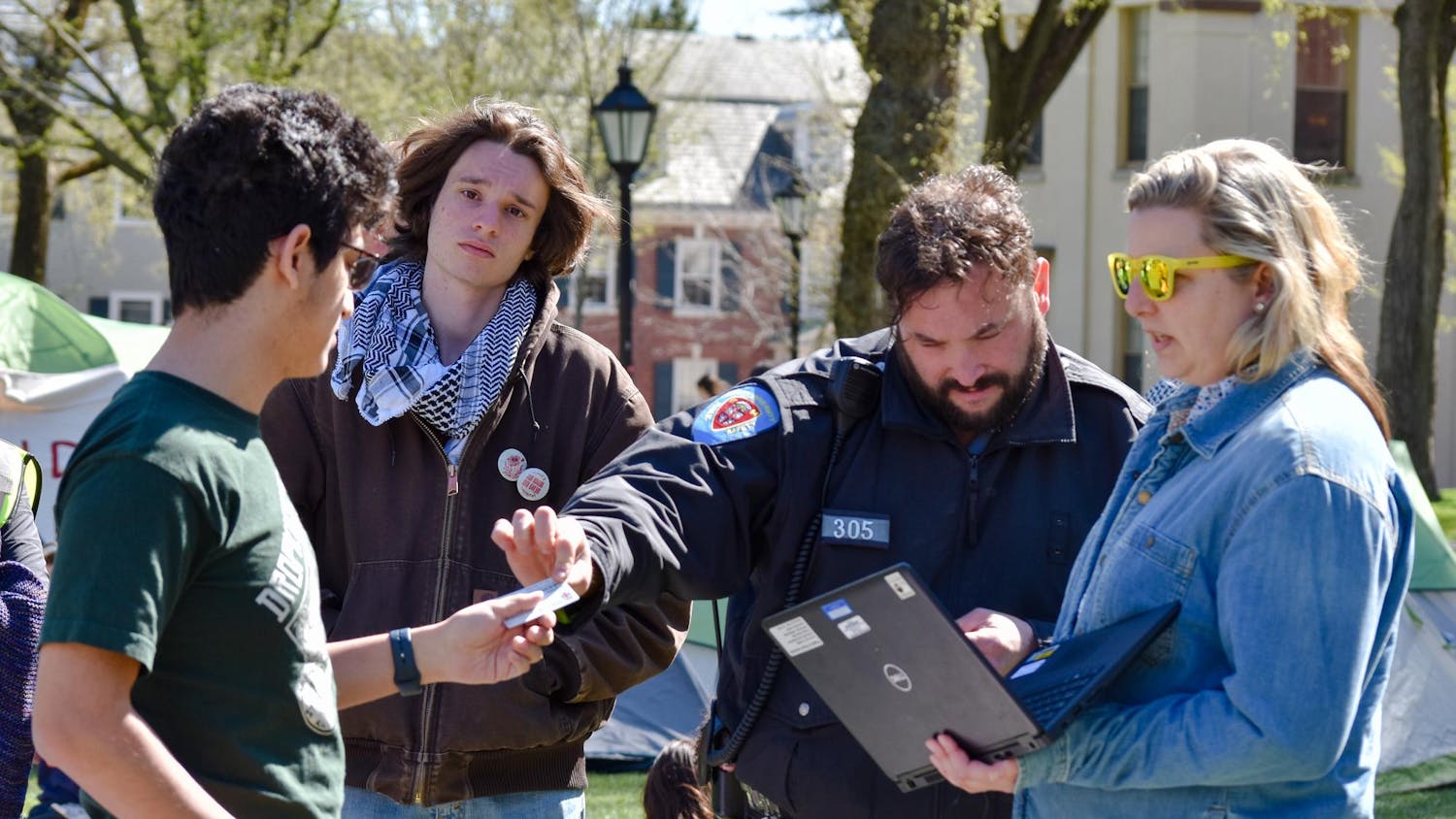The Undergraduate Council of Students proposed an act to create a committee to review the organization’s bylaws, introduced an amendment to the referendum process and presented a referendum about reparations at its general body meeting Wednesday evening.
The UCS bylaws, which are separate from its constitution, are a set of rules and regulations that govern the Council’s internal operations. The bylaws contain guidelines for dealing with topics such as voting procedures and the Council’s relationship to the Undergraduate Finance Board, said Chair of Appointments Eamon McKeever ’22, who sponsored the act to create a bylaw review committee.
“There’s a bunch of small discrepancies (in the bylaws) that I think would be good for a committee to get together and go through,” McKeever said, adding that he believes the committee could also “make recommendations about organizational structure for the future.”
If approved, the committee would be composed of the UCS Parliamentarian and committee members appointed by the UCS Chief of Staff, according to the text of the act. The committee would also recruit members this semester and conduct a review of the bylaws during the summer semester, after which it would present its recommendations to the full general body in the fall for a vote, said Chair of Campus Life and act co-sponsor Zane Ruzicka ’23.
Despite needing an appointment by the chief of staff, McKeever hopes that any undergraduate interested in the committee will be able to join, with the chief of staff simply facilitating the connection between that individual and the committee, he said.
UCS also proposed an amendment to change a bylaw which currently states that in order for a student initiative or referendum to appear on a UCS ballot, it must get both 300 student signatures and approval from the UCS general body, Ruzicka said.
The amendment would allow undergraduates to introduce an initiative to the ballot simply by obtaining 300 signatures and getting those signatures validated by the UCS Elections Board, according to the text of the amendment.
Students proposing initiatives would still have to present to UCS, but the presentation would be for informational purposes rather than for voting purposes.
“The work of an undergraduate to get 300 signatures, which is a very lofty bar to achieve, 15 undergraduates could conceivably overturn” on the Council, Ruzicka continued. “It’s really, in my opinion, not a democratic process. If 300 undergraduate students agree that something should be asked of the entire student population, then, in my opinion, it should end up on the ballot.”
This revision to the referendum process is being introduced before the upcoming spring elections because many undergraduates are hoping to get initiatives on the ballot, Ruzicka added.
General body members expressed some confusion over the difference between an initiative and a referendum. A referendum can only be proposed by a member of the Council and is included on the UCS spring election ballot. Such a proposal would not need the 300 signatures and would simply need a two-thirds majority vote to be included, Ruzicka clarified.
“I just want to draw attention to the fact that this resolution itself and also the clarification (Ruzicka) just made all kind of stem from the fact that our bylaws are incredibly unclear and dysfunctional at the moment,”said Chief of Staff Sam Caplan ’22, who co-authored a Feb. 28 op-ed in The Herald about the need for reform to the Council’s bylaws. “If there was any clear illustration of why we need bylaws reform, I think this conversation does a pretty good job.”
Also at the meeting, UCS President Jason Carroll ’21 shared that the resolution calling for the University to provide reparations to descendants of slaves impacted by Brown passed with more than 80 percent of the Council in favor.
To build off this resolution, Carroll introduced referenda to add two questions regarding reparations to the spring ballot. The first question asks students whether they are in favor of the University working to identify descendants of slaves who were impacted by Brown, and the second asks whether students are in favor of the University providing reparations to the individuals identified, Carroll said.
If the Council votes to include the referenda on the ballot, Brown “would be the second university in the nation, as far as I know, to have a question around reparations for those who were connected to their university through slavery,” Carroll said. “We are one of the first student governments in the nation to have this conversation.”

ADVERTISEMENT




